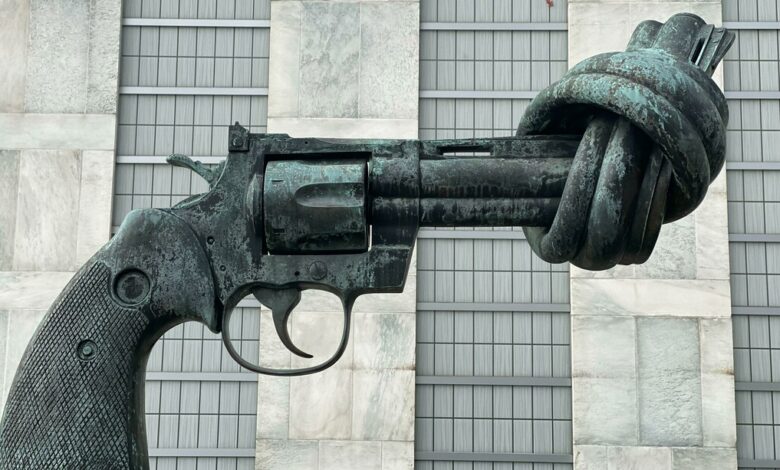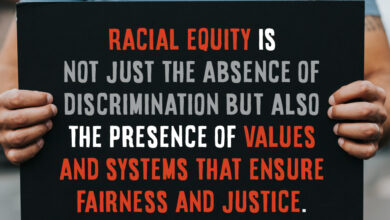Gun control and mass shootings

Gun control has been a highly debated topic in the United States for decades. One of the main reasons for this debate is the alarming frequency of mass shootings. These tragedies have claimed countless lives and left many others injured, sparking a national conversation on the need for stricter gun control laws. In this article, we’ll explore the relationship between gun control and mass shootings, and examine the pros and cons of implementing stricter laws.
Introduction
In recent years, mass shootings have become a frequent occurrence in the United States. These violent events have sparked a national conversation on the need for stricter gun control laws. The debate over gun control is highly polarized, with proponents arguing that stricter laws will reduce the number of mass shootings, while opponents argue that it would infringe upon their Second Amendment rights. In this article, we’ll examine the arguments for and against gun control, and explore the history of gun control laws in the United States.
What is Gun Control?
Gun control refers to laws and policies that regulate the manufacture, sale, possession, and use of firearms. These laws are designed to prevent gun-related deaths and injuries, reduce crime rates, and improve public safety. Gun control measures can include background checks, waiting periods, limits on magazine capacity, and restrictions on certain types of firearms.
The History of Gun Control in the United States
The history of gun control in the United States dates back to the early 20th century, with the passage of the National Firearms Act of 1934. This law required the registration of certain types of firearms, including machine guns, and imposed a tax on the manufacture and sale of these weapons. In 1968, the Gun Control Act was passed, which prohibited the sale of firearms to convicted felons, minors, and individuals with a history of mental illness.
In recent years, there have been numerous attempts to pass gun control laws in the wake of mass shootings, including the Sandy Hook Elementary School shooting and the Stoneman Douglas High School shooting. However, many of these efforts have been met with resistance from pro-gun advocates and the National Rifle Association (NRA).
The Relationship Between Gun Control and Mass Shootings
There is a strong correlation between the availability of firearms and the number of mass shootings. Countries with stricter gun control laws tend to have lower rates of gun-related deaths and injuries. According to a study by the Harvard School of Public Health, countries with higher levels of gun ownership have higher rates of firearm-related deaths.
Proponents of gun control argue that stricter laws can prevent mass shootings by making it more difficult for individuals to obtain firearms. However, opponents argue that criminals will still find ways to obtain guns and that stricter laws will only disarm law-abiding citizens.
The Pros of Implementing Stricter Gun Control Laws
There are several potential benefits to implementing stricter gun control laws. These include:
- Reducing the number of mass shootings and other gun-related deaths and injuries.
- Making it more difficult for criminals and individuals with a history of mental illness to obtain firearms.
- Reducing the availability of high-capacity magazines and assault weapons, which are often used in mass shootings.
- Improving public safety by reducing the number of firearms in circulation.
The Cons of Implementing Stricter Gun Control Laws
Opponents of gun control argue that stricter laws would not necessarily reduce the number of mass shootings, as criminals and individuals with malicious intent will still find ways to obtain firearms. They also argue that it would infringe upon their Second Amendment rights and that law-abiding citizens should not be punished for the actions of a few individuals.
Other arguments against gun control include the belief that it would only create a black market for firearms and that criminals would still be able to obtain guns illegally. Additionally, some argue that gun control laws would not address the root causes of mass shootings, such as mental health issues and societal problems.
The Second Amendment and Gun Control
The Second Amendment of the United States Constitution guarantees the right to bear arms. However, the interpretation of this amendment has been a topic of much debate. Proponents of gun control argue that the Second Amendment was intended to allow for the formation of a militia and that individual rights to bear arms should be regulated.
Opponents argue that the Second Amendment guarantees individual rights to own firearms and that any attempt to regulate this right would be unconstitutional. However, it’s worth noting that the Supreme Court has upheld the constitutionality of certain gun control measures, such as background checks and restrictions on certain types of firearms.
Gun Control Measures in Other Countries
Many countries around the world have implemented strict gun control measures, with varying degrees of success. In countries like Japan and Australia, where gun ownership is heavily regulated, rates of gun-related deaths and injuries are significantly lower than in the United States.
However, it’s important to note that the United States has a unique history and culture surrounding firearms, and implementing similar gun control measures may not have the same results as in other countries.
As a society, we must work towards finding solutions to reduce the number of mass shootings and gun-related deaths and injuries. While it is unlikely that any single measure can completely eliminate the possibility of such tragedies, it is important to explore a range of options, including stricter gun control laws, addressing mental health issues, and addressing societal problems that contribute to violence. Ultimately, our goal should be to create a safer and more equitable society for all.



